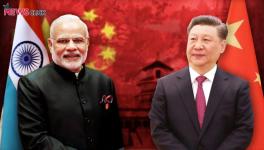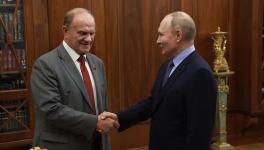Machiavelli, Huxley, and Internet Governance
Niccolò Machiavelli's The Prince was first circulated in 1513, so it seems fitting, 500 years later, to see whether it has anything to say about the current disputes regarding Internet governance. And in 1958 Aldous Huxley published Brave New Word Revisited, in which he made some predictions regarding the future of democracy and society in general. So it seems fitting 55 years later, to see whether it has anything to say about Internet governance.
Citations to specific sections of The Prince will take the form "(M, V-1)", where V identifies the chapter and 1 the section within the chapter. Citations to Brave New Word Revisited will take the form "(H, 23)" where 23 identifies the page number of the 2004 Vintage Classics edition. All direct citations are in italics. The very free translations of The Prince are my own: I have substituted terms such as "entity" and "company" for "state" in order to make Machiavelli's maxims more directly related to Internet governance (and I have borrowed freely from my own book The Boss: Machiavelli on Management, Pyramid, 2000).

Map of Regional Internet Registries
When you acquire entities that have been used to live with their own rules and independence, and you wish to control them, you can do it in three ways: 1) destroy them; 2) manage them personally; 3) let them continue to live with their own rules, establishing inside the entity a few people who will keep it friendly to you. (M, V-1)
Those who are familiar with the history of Internet governance will recognize how a formerly independent community has been managed using method (3) above: selected people who are friendly to certain interests have become well established and tend to dominate discussions of Internet governance.
We should examine whether a ruler has enough power that he can, if needed, stay in power by himself, or whether he will always need help from others. ... In the second case all that can be said is that the ruler should fortify his own entities and ignore outside forces. And whoever has well fortified his own entities ... will only be attacked with great respect, because people are always inimical to ventures that appear difficult, nor can it appear easy to attack someone who has protected his turf ..." (M, X-1)
Recall how the US and its allies protect, strengthen, and reinforce existing mechanisms (which they refer to as "the successful current multi-stakeholder model of Internet governance") and essentially ignore all calls for meaningful change. And note how calls for meaningful change are cautious and tentative.
... is it better to be loved than feared, or is it better to be feared than loved? The answer is that one would wish to be both, but, because it is difficult to be both, it is much safer to be feared rather than loved, if one must forego one of the two. (M, XVII-2)
Nevertheless, one must make oneself feared in such as way that, if one does not gain love, one avoids hatred. Because one can easily be feared and not hated, which will always be the case if one does not take what is dear to one's subjects. (M, XVII-3)
One might wonder whether the privacy violations engendered by various unilateral pervasive surveillance programs (such as that of the US NSA) might lead to reactions that could overcome the natural fear of challenging the status quo.
Everyone knows how praiseworthy it is to keep one's word and to rely on honesty rather than cunning. Nevertheless we see from experience that in our times those who have achieved great things have put little stock in integrity, and that they have used cunning to manipulate the minds of people; and in the end they have surpassed those who relied on honesty. (M, XVIII-1)
Those familiar with the history of Internet governance will recall repeated promises to the effect that the US government would soon relinquish its direct supervisory role of certain aspects of Internet governance, and that other governments would be given appropriate roles.
In their propaganda, today's dictators rely for the most part on repetition, suppression and rationalization - the repetition of catchwords which they wish to be accepted as true, the suppression of facts which they wish to be ignored, the arousal and rationalization of passions which may be used in the interests of the Party or the State. (H, 48)
"All effective propaganda," Hitler wrote, "must be confined to a few bare necessities and then must be expressed in a few stereotyped formulas." These stereotyped formulas must be constantly repeated for "only constant repetition will finally succeed in imprinting an idea upon the memory of a crowd." (H, 57)
The continual repetition of the catchwords "successful current multi-stakeholder model" is a good example of this technique. Indeed, when drafting text on Internet governance, it is not unusual to be faced with proposals to include such language in nearly every paragraph. Contrast this with the minimization of discussions of the fact that costs for Internet connectivity in developing countries are relatively much higher than they are in developed countries, with the consequence that the penetration of Internet is much lower in developing countries.
And recall how, prior to the Snowden revelations, it was customary to conflate any criticism of the status quo with a call to impose censorship, stifle free speech, etc. A typical arousal and rationalization of passions. Which was endlessly repeated in various blogs and online discussion forums.
All ... statements must be made without qualification. There are no grays in ... [the] picture of the world; everything is either diabolically black or celestially white. In Hitler's words, the propagandist should adopt a "systematically one-sided attitude towards every problem that has to be dealt with." He must never admit that that he might be wrong or that people with a different point of view might be even partially right. Opponents should not be argued with; they should be attacked, shouted down, or, if they become too much of a nuisance, liquidated. (H, 58)
Anybody who has attempted to put forth a point of view contrary to that of the proponents of the status quo has experienced being attacked and shouted down.
The propagandist arbitrarily associates his chosen product, candidate or cause with some idea, some image of a person or thing, which most people, in a given culture, unquestioningly regard as good. (H, 105)
Recall how the expression "free and open Internet" is used repeatedly in association with the status quo, because of course everybody (or at least almost everybody in the industrialized West) will regard "free" and "open" as "good". So this creates an expectation that it might be dangerous to challenge the status quo, especially given the minimization (noted above) of the defects of the status quo, such as excessive cost in some areas, insufficient access in some areas, pervasive surveillance, inadequate security which favors cybercrime, etc.
A ruler must, therefore, take great care never to say anything that is not full of good qualities, so that he appears, to those who see him and hear him, full of virtues. ... All people see what you appear to be. (M, XVIII-5)
It remains to be see how the US behavior and statements regarding the recent revelations of pervasive surveillance will be perceived and what their consequences might be for Internet governance.
A ruler must fear two forces: from within on behalf of his subject, from outside on behalf of powerful enemies. He protects himself against outside threats through his own strength and that of his good friends; and if he has enough strength, he will always have good friends. And there will never be an internal threat if there is no external threat. (M, XIX-2)
One wonders whether external criticism of the current Internet governance arrangements, in particular following the recent revelations of pervasive surveillance, may have encouraged internal criticism, in particular from private companies that fear that US surveillance practices may cause them to lose business.
If you see that a subordinate entity is thinking more of itself than of you and that, in all its actions, it is seeking its own good, which a good subordinate would never do, then you will never be able to trust that subordinate entity. (M, XXII-3)
Powerful countries tend to view intergovernmental organizations as their subordinates, which in a sense they are, because such organizations exist only to further the interests of their member states. In this context, it is easy to understand why the US does not trust intergovernmental organizations such as the ITU, because those organizations do not exclusively seek the good of the US.
Indeed, less powerful countries tend to view states as subordinate to intergovernmental organizations, because such organizations are supposed to articulate a common understanding of what is best for the world in general. In that context, it is easy to see how a significant number of UN member states would not trust the US, because the US does not exclusively seek the good of the world in general.
An unexciting truth may be eclipsed by a thrilling falsehood. (H, 135)
Contrast the false statement "WCIT was going to be used by authoritarian states to grab control of the Internet and impose censorship" with the correct statement "WCIT had no power to limit freedom of speech and its purpose was to discuss modernization of the international agreements that have facilitated telecommunications since 1865 and that have been instrumental in facilitating the growth of the Internet."
In their anti-rational propaganda, the enemies of freedom systematically pervert the resources of language in order to wheedle or stampede their victims into thinking, feeling and acting as they, the mind-manipulators, want them to think, feel and act. (H, 136)
Indeed the catchwords "free and open Internet" apply to a system portions of which are formally under the supervision of the US government, portions of which are controlled by large private companies, and in which decisions are made without any meaningful consultation with or input from ordinary users and the vast majority of the word's population.
For a recent example, see the statement by Paul Wilson: "It is of course fundamental that the Internet should continue to be driven from the bottom up, by all sectors of our multistakeholder community." ("What is /1net to me?", 18 December 2013)
Never mind that the criticism of the status quo is precisely that it is not really bottom up and does not really involve all interested parties.
Disclaimer: The views expressed here are the author's personal views, and do not necessarily represent the views of Newsclick
Get the latest reports & analysis with people's perspective on Protests, movements & deep analytical videos, discussions of the current affairs in your Telegram app. Subscribe to NewsClick's Telegram channel & get Real-Time updates on stories, as they get published on our website.
























